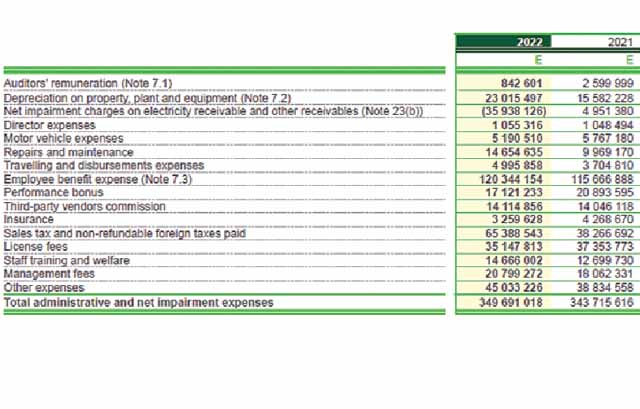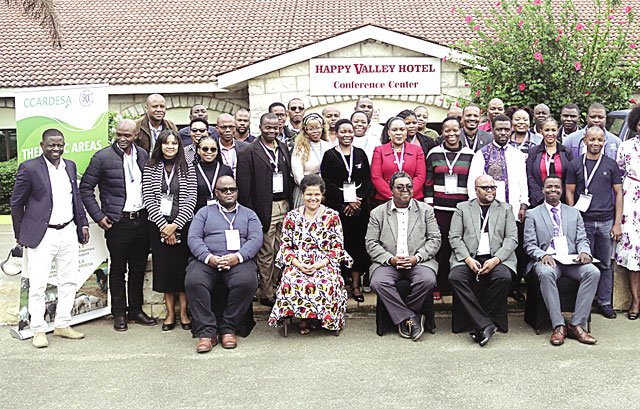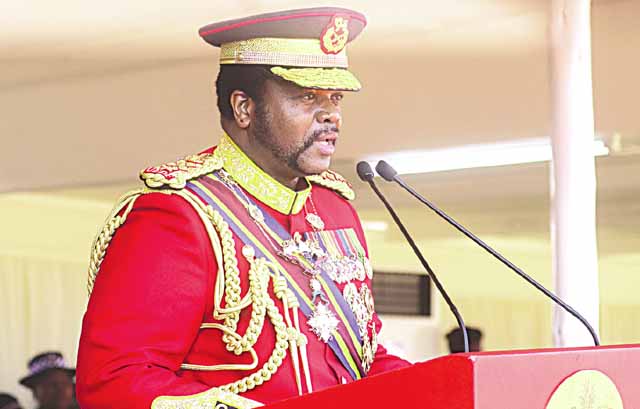By KWANELE DHLADHLA | 2023-02-09

Eswatini Electricity Company employees cashed in bonuses valued at E37.9 million over the last two years.
These figures are disclosed hardly a week after Eswatini Energy Regulatory Authority (ESERA) disallowed performance bonuses and a salary increase above inflation (6.75 per cent) to be included in operating expenses for the 2023/24 and 2024/25 financial year.
As a result, EEC’s costs were adjusted by E87 million in the tariff application where EEC was granted a tariff increase for domestic customers of 10.98 per cent while energy charges for time of use customers were increased by 10.80 per cent.
The operating costs were reduced from E1 billion to E935.3 million.
In financial statements issued by the power utility company for the year ended March 31, 2022 it was disclosed that a total sum of E17.1 million was paid in what was termed performance bonuses.
During the year ended March 2021, it was mentioned that the bonuses were E20.9 million. This effectively means the Category A parastatal led by Ernest Mkhonta paid out E37.9 million as bonuses over the last two financial years.
A further analysis shows that the director's expenses amounted to E1 million in the recently ended financial reporting period. In the past financial year, 2020/21, the directors expenses of the organisation whose Board Chairman was Phil Mnisi were E1 million as well.
EEC’s travelling and disbursements expenses rose from E3.7 million to E4.9 million during the two financial years.
Management fees were also reported to have risen from E18 million to E20.9 million.
Overall, EEC stated that their total administrative and net impairment expenses stood at E349.7 million, an increase from the E343.7 million during the past financial year.
EEC confided that the company’s financial performance had come under pressure in the year under review, owing to a general slowdown in the country’s economy.
It was pointed out that the systemic impact of COVID-19 continued to linger in the reporting cycle with adverse consequences on operating performance.
It was mentioned that this challenging operational context was further exacerbated by the disruptive incidents of political unrest which occurred in the country, especially during the first quarter of the year.
Total revenue was reported to have been E2.462 billion, which was almost the same as the E2.452 billion reported last year.
“The stunted revenue growth is largely attributable to the combined effects of COVID-19 and the political unrest during the year.
Another factor which impacted on the financial performance of the company is the fact that, having endured a two-year tariff freeze, the Eswatini Energy Regulator (ESERA) awarded a negative aggregate tariff adjustment for the two years commencing with the year under review,” reads a part of the report.
share story
Post Your Comments Below

Eswatini along with many other African nations is under scrutiny for failing to meet its commitme...
Study to shew thyself approved unto God, a workman that needed not to be ashamed, rightly dividin...
SOCCER -YOUNG Buffaloes striker Sandile ‘Saviola’ Gamedze and Ludzeludze Killers&rsqu...

His Majesty King Maswati III has thanked Emaswati for their support, love and the gift of peace. ...
All material © Swazi Observer. Material may not be published or reproduced in any form without prior written permission.
Design by Real Image Internet